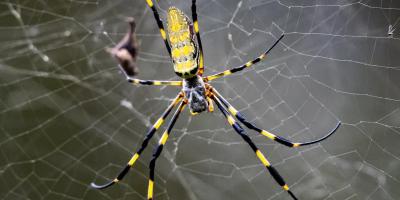Don’t Cross The Line: New England’s Illegal Transportation Problem

Have you broken the law lately? If you’ve brought firewood across state lines, the answer is yes. Don’t worry, there isn’t an underground firewood trafficking ring devastating New England’s trees that we’re accusing you of orchestrating. The problem actually revolves around those that are uneducated on the truly adverse effects of out-of-state firewood. In fact, it’s not about the wood at all.
Firewood has been definitively proven to be a major pathway for forest pests and invasive species of insects. This is a nationwide issue that has serious implications throughout the state and national parks and forests of New England. Various statewide bans are a result of two non-native insects from Asia, the Asian Longhorned Beetle and the Emerald Ash Borer. Those readers from Massachusetts may be familiar with the Asian Longhorned Beetle, a species that ravaged through 34,000 of Worcester’s Norway maple trees. The Emerald Ash Borer, having killed millions of ash trees, is such a high-profile pest that there is a federal quarantine in permanent effect.
Don’t Leave Damage To The Usual Suspects
Though there are particularly damaging pests that are under the ecological microscope, the problem isn’t limited to these culprits. The effects of invasive species are generally studied reactively, or after at least some damage is done. A study conducted by the N.H. Division of Forests and Lands emphasized the proliferation of insects living within firewood. In firewood from four New England states and New York, more than 650 insects emerged from the mere 19 samples collected.
While many species of insects don’t pose any initial threat to state forestry, only time can tell whether invasive species will prove to be devastating to local ecosystems. 19 sticks of firewood can easily be burned through within just one week. That 650 figure multiplies at an alarming rate with winter looming, as stacks of firewood form wooden walls with pest filled mortar on New England properties.
Every State In New England Is Dedicated to Healthy Forests
New England is the most heavily forested region in the United States. With 80 percent of its surface covered by forest or thick woods, there is a lot at stake for the trees in these parts. Without federal firewood regulations, each state has its own rules and regulations in place to restrict the transportation across state lines. We’ll provide a brief rundown here, but we encourage you to click into the links for more specific information.
New Hampshire's exterior quarantine prohibits bringing out-of-state firewood into the state. It is against Maine's regulations to bring out-of-state firewood into Maine. Massachusetts State Parks prohibit the transportation of any firewood into or out of state campground facilities, and many private campgrounds require that firewood be purchased on site. Vermont prohibits bringing untreated firewood into the state. Connecticut prohibits the transportation of hardwood firewood from any emerald ash borer quarantined county to any area that is not infested. Authorities in Rhode Island advise that firewood should be bought and used locally to prevent the spread of pests within the state. It is illegal to move untreated firewood from Massachusetts or Connecticut into Rhode Island, due to the emerald ash borer federal quarantine.
Keep Your Firewood Local
If you’re burning wood in your home, it should be from as close to home as possible. Invasive species pose a serious threat to the forests in our region, and that threat can be brought inside of homes if wood piles are stowed in basements or on porches. The safest way to prevent unusual species of insects crawling inside is to stick with wood from your local area.



